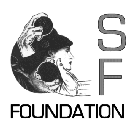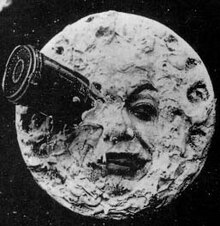
Geoffrey Charles Ryman is a Canadian writer of science fiction, fantasy, slipstream and historical fiction.

Joanna Russ was an American writer, academic and feminist. She is the author of a number of works of science fiction, fantasy and feminist literary criticism such as How to Suppress Women's Writing, as well as a contemporary novel, On Strike Against God, and one children's book, Kittatinny. She is best known for The Female Man, a novel combining utopian fiction and satire, and the story "When It Changed".

DePauw University is a private liberal arts college in Greencastle, Indiana. It was founded in 1837 as Indiana Asbury University and changed its name to DePauw University in 1884. The college has a Methodist heritage and was founded to be an ecumenical institution of national stature, "conducted on the most liberal principles, accessible to all religious denominations and designed for the benefit of our citizens in general".

The British Science Fiction Association Limited is an organisation founded in 1958 by a group of British academics, science fiction fans, authors, publishers and booksellers in order to promote the writing, criticism, and study of science fiction in every form. The first President of the BSFA was Brian Aldiss. Pat Cadigan became president in August 2020, and Tade Thompson became the Vice President in June 2021.
The Pioneer Award is given by the Science Fiction Research Association to the writer or writers of the best critical essay-length work of the year. In 2019 it was renamed the SFRA Innovative Research Award.
George Reginald Turner was an Australian writer and critic, best known for the science fiction novels written in the later part of his career. His first science fiction story and novel appeared in 1978, when he was in his early sixties. By this point, however, he had already achieved success as a mainstream novelist, including a Miles Franklin Award, and as a literary critic.

Foundation: The International Review of Science Fiction is a critical peer-reviewed literary journal established in 1972 that publishes articles and reviews about science fiction. It is published triannually by the Science Fiction Foundation. The Encyclopedia of Science Fiction has called it "perhaps the liveliest and indeed the most critical of the big three critical journals". A long-running feature was the series of interviews and autobiographical pieces with leading writers, entitled "The Profession of Science Fiction", a selection of which was edited and published by Macmillan Publishers in 1992. Several issues have been themed, including #93, also published as part of the Foundation Studies in Science Fiction. The hundredth edition was unusual in that it was an all-fiction issue, including stories by such writers as Vandana Singh, Tricia Sullivan, Karen Traviss, Jon Courtenay Grimwood, John Kessel, Nalo Hopkinson, Greg Egan, and Una McCormack. Back issues of the journal are archived at the University of Liverpool's SF Hub whilst more recent issues can be found electronically via the database providers ProQuest.

Extrapolation is an academic journal covering speculative fiction, established in 1959. It was the first journal in its field and is published by Liverpool University Press.
Darko Ronald Suvin is a Canadian academic, writer and critic who became a professor at McGill University in Montreal. He was born in Zagreb, which at the time was in Kingdom of Yugoslavia, now the capital of Croatia. After teaching at the Department for Comparative Literature at the Zagreb University, and writing his first books and poems in his native language, he left Yugoslavia in 1967, and started teaching at McGill University in 1968.
A sense of wonder is an intellectual and emotional state frequently invoked in discussions of science and biology, higher consciousness, science fiction, and philosophy.

Lovecraft: A Biography is a 1975 biography of the writer H. P. Lovecraft by science-fiction writer L. Sprague de Camp, first published in hardcover by Doubleday in February 1975.

Mundane science fiction (MSF) is a niche literary movement within science fiction that developed in the early 2000s, with principles codified by the "Mundane Manifesto" in 2004, signed by author Geoff Ryman and "The Clarion West 2004 Class". The movement proposes "mundane science fiction" as its own subgenre of science fiction, typically characterized by its setting on Earth or within the Solar System; a lack of interstellar travel, intergalactic travel or human contact with extraterrestrials; and a believable use of technology and science as it exists at the time the story is written or a plausible extension of existing technology. There is debate over the boundaries of MSF and over which works can be considered canonical. Rudy Rucker has noted MSF's similarities to hard science fiction and Ritch Calvin has pointed out MSF's similarities to cyberpunk. Some commentators have identified science fiction films and television series which embody the MSF ethos of near-future realism.
Science fiction studies is the common name for the academic discipline that studies and researches the history, culture, and works of science fiction and, more broadly, speculative fiction.
Van Ikin is an academic and science fiction writer and editor. A professor in English at the University of Western Australia, he retired from teaching in 2015 and is now a senior honorary research fellow. He has acted as supervisor for several Australian writers completing their post-graduate degrees and doctorates — including science fiction and fantasy writers Terry Dowling, Stephen Dedman, and Dave Luckett — and received the university's Excellence in Teaching Award for Postgraduate Research Supervision in 2000.

Andromeda Spaceways Inflight Magazine or ASIM is a fantasy and science fiction magazine published out of Canberra, ACT, Australia. The publishers of ASIM describe it as "Australia's Pulpiest SF Magazine". The magazine is currently edited by Andromeda Spaceways Publishing Incorporated and is published quarterly. Although originally sold only in Australia, subscriptions for ASIM are now available worldwide through Amazon.com and other online vendors.
Australia, unlike Europe, does not have a long history in the genre of science fiction. Nevil Shute's On the Beach, published in 1957, and filmed in 1959, was perhaps the first notable international success. Though not born in Australia, Shute spent his latter years there, and the book was set in Australia. It might have been worse had the imports of American pulp magazines not been restricted during World War II, forcing local writers into the field. Various compilation magazines began appearing in the 1960s and the field has continued to expand into some significance. Today Australia has a thriving SF/Fantasy genre with names recognised around the world. In 2013 a trilogy by Sydney-born Ben Peek was sold at auction to a UK publisher for a six-figure deal.
Science Fiction magazine is a long running science fiction critical journal published in Australia by SF academic Van Ikin from the University of Sydney and later the University of Western Australia. Contributing editors have included writer Terry Dowling and book collector and reviewer Keith Curtis.

To Write Like a Woman: Essays in Feminism and Science Fiction is a collection of essays by Joanna Russ, published in 1995. Many of the essays previously appeared as letters, in anthologies, or in journals such as Science Fiction Studies, Extrapolation, and Chrysalis. Topics range from the work of specific authors to major trends in feminism and science fiction. Through all of these different topics, Russ underlines the importance of celebrating the work of female authors and turning a critical eye on the commentaries and work produced by men.
The Society for Financial Studies (SFS) is a nonprofit, academic society in the field of finance. It owns and runs three academic journals: (1) the Review of Financial Studies, (2) the Review of Asset Pricing Studies, and (3) the Review of Corporate Finance Studies. It organizes the SFS Cavalcade North America and the SFS Cavalcade Asia-Pacific, which are annual academic conferences. It financially supports and co-sponsors many independent finance academic conferences. Its governing board is the SFS Council.










